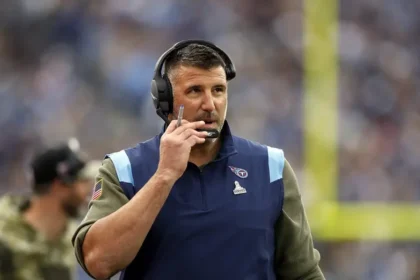Modern senior homes now focus on wellness, offering professional care, social engagement, and holistic programs to support physical and emotional health, helping seniors maintain quality of life.
Physical Health Support in Senior Communities
Senior homes prioritize physical wellness through comprehensive programs that address the unique needs of aging bodies. These communities understand that maintaining physical health directly impacts overall quality of life and independence.
Structured Exercise Programs
Most senior communities offer tailored fitness programs designed for various mobility levels and health conditions. These might include:
- Chair exercises for residents with limited mobility
- Water aerobics that provide low-impact cardiovascular benefits
- Balance and fall prevention classes to reduce injury risk
- Strength training adapted for older adults
- Walking groups that encourage gentle movement and social interaction
Professional fitness instructors trained in senior wellness lead these activities, ensuring exercises are safe and appropriate for each participant’s abilities.
Nutritional Support and Meal Planning
Proper nutrition becomes increasingly important with age, yet many seniors struggle with meal preparation, appetite changes, or dietary restrictions. Senior homes address these challenges through:
- Professionally planned meals that meet nutritional guidelines for older adults
- Special diet accommodations for conditions like diabetes, heart disease, or swallowing difficulties
- Regular meal times that promote healthy eating habits
- Social dining experiences that encourage proper nutrition through community meals
Registered dietitians often oversee meal planning to ensure residents receive balanced nutrition tailored to their individual health needs.
On-Site Medical Care and Health Monitoring
Many senior communities provide convenient access to healthcare services, including:
- Regular health assessments by qualified nursing staff
- Medication management to ensure proper dosing and timing
- Coordination with external physicians and specialists
- Emergency response systems available 24/7
- Preventive care programs including vaccinations and health screenings
This integrated approach helps identify health issues early and ensures consistent medical oversight.
Mental Health and Cognitive Wellness
Senior homes recognize that mental health is equally important as physical health, particularly as older adults face increased risks of depression, anxiety, and cognitive decline.
Therapeutic Support Services
Professional mental health support in senior communities often includes:
- Individual counseling to address personal challenges or grief
- Group therapy sessions focusing on common senior concerns
- Support groups for specific conditions like memory loss or chronic illness
- Crisis intervention services when needed
Licensed therapists and counselors who specialize in geriatric mental health provide these services, understanding the unique psychological challenges of aging.
Cognitive Stimulation Activities
Brain health programs help maintain cognitive function and may slow the progression of memory-related conditions:
- Memory games and puzzles that challenge cognitive abilities
- Educational classes on various topics of interest
- Reading groups and book clubs that promote mental engagement
- Technology training to keep residents connected with modern tools
- Art and music therapy that stimulate different areas of the brain
Research shows that regular cognitive engagement can help maintain mental sharpness and may reduce the risk of dementia.
Emotional Support and Mental Wellness
Senior communities create environments that support emotional well-being through:
- Regular mental health screenings to identify concerns early
- Stress management programs teaching coping strategies
- Spiritual care services for those who find comfort in faith
- Pet therapy programs that provide emotional comfort and companionship
Community and Socialization Benefits
Social isolation significantly impacts both physical and mental health in older adults. Senior homes combat loneliness through structured community living that encourages meaningful connections.
Social Activities and Events
Vibrant social calendars typically include:
- Holiday celebrations and seasonal events that create shared experiences
- Game nights and tournaments that encourage friendly competition
- Cultural outings and field trips to maintain community connections
- Volunteer opportunities that provide purpose and fulfillment
- Intergenerational programs connecting residents with younger community members
These activities combat depression and anxiety while promoting cognitive health through social engagement.
Shared Living Experiences
The community atmosphere in assisted living, like that in Layton, creates natural opportunities for friendship and mutual support. Residents often form close bonds through:
- Shared meals that encourage conversation and connection
- Common areas designed for socializing and relaxation
- Hobby groups where residents with similar interests can connect
- Buddy systems that provide peer support and friendship
Family Engagement Programs
Quality senior communities also facilitate continued family relationships through:
- Family events and gatherings held on-site
- Private spaces for family visits and celebrations
- Communication tools that keep families informed and connected
- Family support groups that help relatives navigate the senior living experience
Personalized Care Approaches
The most effective senior communities recognize that each resident has unique needs, preferences, and health requirements.
Individual Assessment and Care Planning
Comprehensive care begins with thorough assessments that consider:
- Medical history and current health conditions
- Physical capabilities and limitations
- Cognitive function and mental health status
- Personal preferences and lifestyle choices
- Family dynamics and support systems
Care teams use this information to develop personalized plans that address specific needs while promoting independence and dignity.
Flexible Service Options
Modern senior communities offer various levels of support that can be adjusted as needs change:
- Independent living with minimal assistance
- Assisted living with help for daily activities
- Memory care for those with cognitive impairments
- Skilled nursing for complex medical needs
This flexibility allows residents to age in place while receiving appropriate care at each stage.
Regular Care Plan Reviews
O,n focus on quality of life
Conclusion
Senior homes now focus on wellness, offering medical care, fitness programs, mental health support, and social activities to help seniors thrive. Families should seek facilities with skilled staff, varied programs, and a commitment to dignity and independence.








